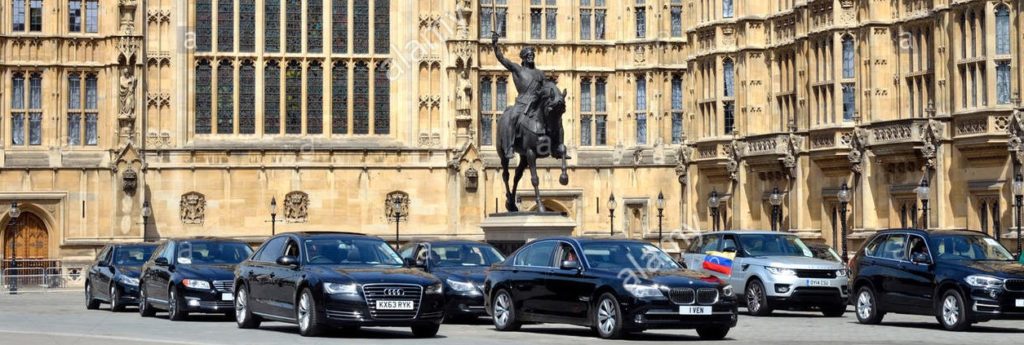In 2013 a freedom of information request was submitted regarding the Palace of Westminster car park permits and MPs’ (and peers’) transport arrangements.
Another request was submitted in 2015.
Members car parking (2015)
Request: (2015)
Is parking made available free for MPs or do they claim it back?
What are the terms and conditions for MPs to use the car parks provided?
Response: (2015)
The House of Commons holds one leaflet provided for Members to explain.
https://www.parliament.uk/documents/foi/155171CP.pdf
Information specific to how the car parks may be accessed has been redacted from the leaflet. This information has been withheld under the following sections of the FOIA:
Section 31 (Law enforcement)
The House considers that releasing the information would be likely to prejudice the prevention or detection of crime and the apprehension or prosecution of offenders. The information is therefore exempt by virtue of s.31(1)(a) and (b) of the FOIA. This is a qualified or non-absolute exemption and the public interest test applies.
We have considered our obligation to assist the public in understanding how we conduct our business by operating in an open and accountable manner and ensuring that Members have adequate access to the parliamentary estate.
These obligations and legitimate interests are outweighed by the risk of the prejudice that might arise in relation to the prevention and detection of crime and apprehension and prosecution of offenders. In providing these details we would be making publicly available specific information regarding accessing the estate by car which might assist criminals seeking to target these areas, undermining the House’s security arrangements and presenting a risk to estate wide security. Disclosure would also assist anyone with malicious or criminal intent to access the vehicles of individuals parking on the estate, making them easier targets for would-be offenders. In disclosing this information, we would fail in our duty to assist those services providing us with law enforcement as it would hinder their work in preventing and detecting crime and apprehending offenders.
In these circumstances it is our view that the public interest in maintaining the exemption outweighs the public interest in disclosing the information.
Section 24(1) (National security)
Section 24 provides an exemption from disclosure where provision of the information would make the UK, its system of government or its people more vulnerable to a national security threat. This is a qualified or non-absolute exemption and the public interest test applies.
Whilst there may be a public interest in the parking arrangements of Members of Parliament, it is considered that in this case it is not in the wider public interest to disclose any information specifically how they may park their cars on the estate, as there is a risk of national security being compromised.
The Information Commissioner’s Office guidance on this exemption states that “It is not necessary to show that disclosing the information would lead to a direct or immediate threat to the UK. In a time of global terrorism our national security can depend on cooperating with others.” Groups planning attacks are known to conduct extensive research into the opposition they might face. The disclosure of this information would assist criminals, terrorists or fixated individuals with malicious intent to target individuals and their vehicles with the aim of disrupting the proper workings of government. It would also compromise the tactics of those responsible for operational security on the parliamentary estate.
For these reasons it is our view that the public interest in maintaining the exemption outweighs the public interest in disclosing the information.
Section 38(1) (Health & Safety)
Lastly, the information relating to access to car parks on the parliamentary estate is being withheld under section 38 (1) (a) and (b) (Health and Safety) of the FOIA, as to disclose this information would be likely to endanger the safety of individuals. This is not an absolute exemption and requires a public test to be performed.
There is a public interest in the parking arrangements of Members of Parliament, however it is not in the wider public interest to disclose any information specifically about how they may park their cars on the estate, as this might pose a risk to the health and safety of any individuals. It would increase the safety risk to anyone on the estate as the information would undermine the House’s security arrangements, putting the safety of those on the estate at risk from individuals with malicious intent. In addition, disclosure of details which enable access points to be identified may make anyone responsible for physical protection of the estate more vulnerable to attack at those points as offenders attempt to gain unauthorised access.
It is our view that the greater public interest in maintaining the exemption outweighs the minor public interest in disclosing the information.
Parking is available for free on the parliamentary estate. No parking terms and conditions, other than those stated in the leaflet, are held by the House of Commons.

Request: (2013)
Please could you supply the following information and breakdowns:
- The cost of a Palace of Westminster car park permit per annum
- The number of MPs (and if possible, the number of peers) who have an active car park permit
- As I understand an MP may request permits for staff, the number of MPs’ offices which have more than one permit, and the MP’s name or constituency
- Whether car park permits are allocated on any needs assessment – eg, disability, age, unsocial hours, distance from Westminster to constituency etc.
Response: (2013)
You asked us for various details about the transport arrangements of MPs and Peers. We have sought to answer each of your questions in turn:
- The cost of a Palace of Westminster car park permit per annum
No charge is levied for the issue of a car park permit for the Palace of Westminster. - The number of MPs (and if possible, the number of peers) who have an active car park permit
334 MPs have permits to park their vehicle on the estate. 423 Peers have permits to park on the estate. All Members of both Houses are able to obtain a permit. - As I understand an MP may request permits for staff, the number of MPs’ offices which have more than one permit, and the MP’s name or constituency
The offices of 7 MPs each have one extra permit for staff. These MPs are;
Graham Brady MP
David Blunkett MP
Andrew Robathan MP
Stephen Brine MP
Richard Shepherd MP
Edward Garnier MP
Keith Simpson MP - Whether car park permits are allocated on any needs assessment – e.g. disability, age, unsocial hours, distance from Westminster to constituency etc.
There are limited car park spaces at the House of Commons. The general principle is that public transport will be used wherever possible. All Members are entitled to a parking space; their staff and staff of the House whose work requires them to be here at times when public transport isn’t normally available may apply for a parking space.
With the exception of Members, persons applying for a car parking permit will be placed on a waiting list, and notified when a vacancy becomes available.
Spaces are allocated on a first come, first served basis. There are spaces reserved for disabled drivers.
All staff with a business or diversity-related need, as authorised by the relevant Head of Department are able to request a car parking permit.
Subscribe
Click here for a secure way to sign up, you will be supporting independent news. Click the button below.
Your Opinions
Disagree with this article? why not write in and you can have your say? email us




